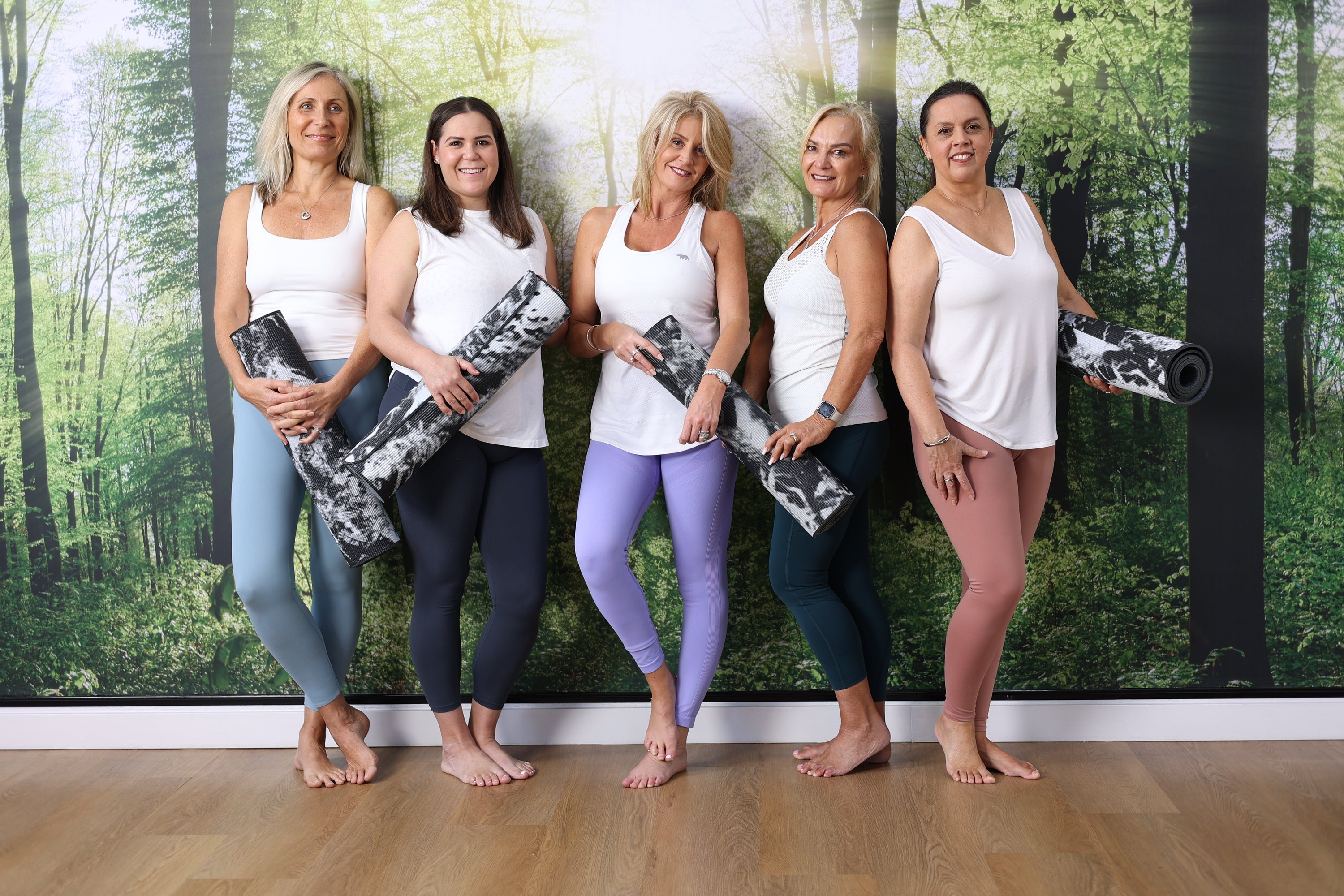
Many years ago, I attended a class where the trainer quite proudly bellowed that his goal was to push people so hard that they literally threw up. Needless to say, I never went back. That sort of behaviour does not inspire me, or I imagine most women to want to participate in traditional exercise classes, so this is where we need to start thinking differently about exercise and how we can turn it into something beneficial that we love to do every day because it makes us feel good. Exercise should not be about pushing our body to the point of pain and exhaustion where we can’t walk for a week afterwards and begrudge doing it because we ‘have’ to.
WHERE DO I BEGIN?
As much as we like to think we are disciplined enough to exercise at home, many of us lack the motivation to stick to any routine, so it is important to find something or someone that inspires us to want to go back for more.
Let’s start thinking about how we move our bodies, what feels good for us and how those movements can become part of our daily rituals. We want the movement to be significant enough to have an after effect that reminds us of what our muscles are for, but not too painful that we don’t have the ability to back it up again the next day.
Do you love walking in the fresh air? Do you enjoy swimming because it takes pressure off your sore joints? Do you feel good after a yoga or pilates stretch class? We are all at different abilities and agilities, and this isn’t about comparing yourself to others. Movement is all about meeting you where you are at and improving from there. Even small changes can make a big impact on your health and your future.

WHAT BENEFITS WILL I SEE?
The benefits of daily movement are well researched and supported. By moving, you are strengthening your muscles which improves your stability, balance, and co-ordination. These are motor skills that tend to decline as we age. Movement helps build more durable and denser bone mass too, particularly important with the prevalence of osteoporosis in menopausal women.
The endorphins released during exercise not only help you feel better, but they also help you think better too. Mental sharpness and better concentration both benefit from physical activity. Improving the delivery of oxygen and nutrients through movement has been shown to stimulate the growth of new brain cells and the prevention of age-related cognitive decline.
Inactivity or sedentary lifestyle are the main risk factors for weight gain and obesity, so regular exercise that increases your metabolism is best for weight loss and maintenance.
It makes sense that if you are going to start a new habit and get healthier, you would also improve your nutrition and hydration. Both of these healthy habits combined with more movement will add to an improved sense of wellbeing, better mobility, clearer mindset and hopefully a longer life.

HOW OFTEN SHOULD I BE MOVING?
Starting your day with movement boosts your cardiovascular health and your energy levels, and by being active during the day, you are more likely to enjoy a more restful night’s sleep.
By far the best benefit from daily movement is your improved sense of well-being and good mood. Walking is one of the many lifestyle remedies for depression, and physical activity signals your brain to release the chemicals that are responsible for feelings of happiness and calm.
It’s never too late and you are never too old to start moving. Explore your local community to find something that puts a smile on your face and gives you a sense of joy. Whether in a group, with a friend or on your own, just start somewhere, and before you know it, you’ll be leaping out of bed and there will be no stopping you!

Written by Mona Hecke
Mona Hecke is a degree qualified Naturopath, nutrition specialist and health and wellness writer.
With over 20 years in the health industry, beginning with a focus on children and families, and a bestselling book ‘The Lunchbox Revolution’, Mona is now empowering women through education and conversation to take action and embrace change. Gut health, mindfulness, nutrition, hormones, and menopause are the topics that women want and need to know to create their healthy future.
Mona holds certifications in Lifestyle Coaching, Kinesiology, holistic herbal medicine, and nutrition.
A recognised leader in the health industry, Mona’s strong social media presence and passion for influencing change will continue to be a catalyst for health reform for the benefit of every Australian.






